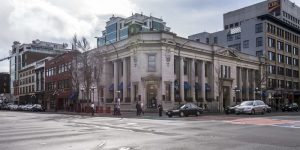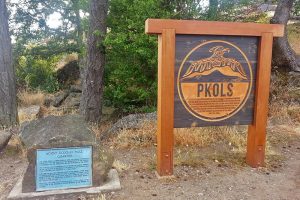In past blog posts on my inquiry into greening our classrooms, I’ve ignored an ongoing process that is embedded in virtually every aspect of Canadian society. This is a process has destroyed nations, wreaked havoc on our national landscape and caused deep-set, intergenerational trauma.
This process is colonization.

Colonization is alive and well in the settler state we know as Canada. However, the common view is that Canada’s colonization was a singular event in history- something to be studied in a history textbook. This narrative is a major obstacle in creating a just society for all people from all nations. We continue building on Indigenous land, despite apologizing, rather than changing actions to move towards decolonization.

If we are to teach environmentalism in our classrooms, it is important to first acknowledge the generations of people who lived in harmony and balance with the land prior to the arrival of settler Europeans. Furthermore, it is important that we teach our students that- as Canadian citizens attending school- the are active participants in Colonization . In other words, the colonial structures that dictate various aspects of settler and Indigenous relationships mean that Canadian colonialism should not be viewed or taught as a historical legacy.
Perhaps the term “sustainability” is not what we should educate our students on if we are to create the environmental stewards of tomorrow. Is our colonial culture something we really wish to sustain?
Upon examining this issue, I’ve come to the conclusion it is more important to first acknowledge that the misuse and limitation of Indigenous land – as well as attitudes of prejudice and ignorance towards Indigenous people act as mechanisms for the continuing process of colonialism. As long as this continues, our nation will be choking on the resource exploitation characteristic of settler colonization.

By recognizing this, settler Canadians can begin to take ownership of their actions and potentially take steps towards a future of decolonization. Like many cultural shifts, I believe decolonization starts in the classroom.